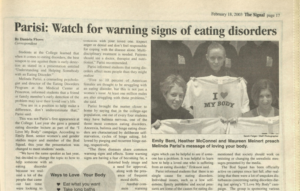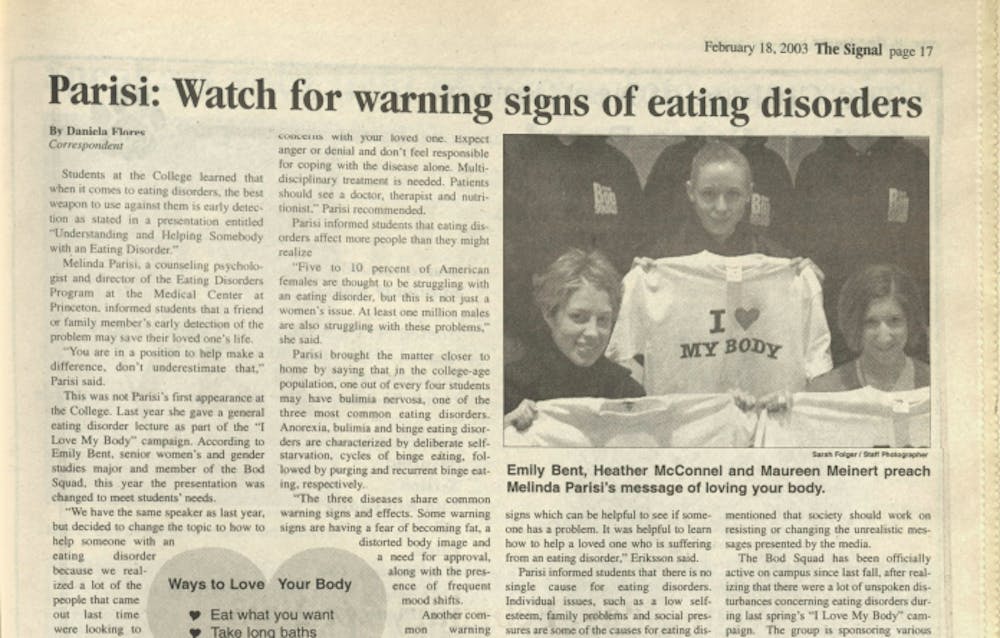By Jane Bowden
Features Editor
In a February 2003 issue of The Signal, a reporter wrote about an event titled, “Understanding and Helping Somebody with an Eating Disorder.” The presentation educated students on the signs of an eating disorder and how to help someone who is suffering.
While National Eating Disorder Awareness Week is only from Feb. 25 to March 1, it’s important to understand the signs of an eating disorder and be prepared to help a friend in need during all times of the year.

Students at the College learned that when it comes to eating disorders, the best weapon to use against them is early detection as stated in a presentation entitled “Understanding and Helping Somebody with an Eating Disorder."
Melinda Parisi. a counseling psychologist and director of the Eating Disorders Program at the Medical Center at Princeton, informed students that a friend or family member's early detection of the problem may save their loved one's life. "You are in a position to help make a difference, don't underestimate that," Parisi said.
This was not Parisi's first appearance at the College. Last year she gave a general eating disorder lecture as part of the "I Love My Body" campaign. According to Emily Bent, senior women's and gender studies major and member of the Bod Squad, this year the presentation was changed to meet students' needs.
"We have the same speaker as last year, but decided to change the topic to how to help someone with an eating disorder because we realized a lot of the people that came out last time were looking to help a friend," Bent said.
In order to help those in need, Parisi told students to approach the individual with compassion and support.
"Learn about eating disorders and know the warning signs before you discuss your Ways to Love Your Body concerns with your loved one. Expect anger or denial and don't feel responsible for coping with the disease alone. Multidisciplinary treatment is needed. Patients should see a doctor, therapist and nutritionist," Parisi recommended.
Parisi informed students that eating disorders affect more people than they might realize.
"Five to 10 percent of American females are thought to be struggling with an eating disorder, but this is not just a women's issue. At least one million males are also struggling with these problems," she said.







